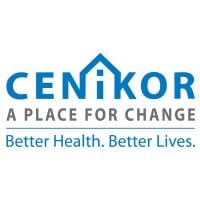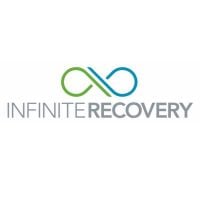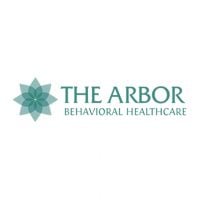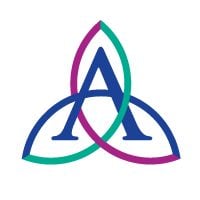Briarwood Detox Center - Austin
Drug Rehab Center in Austin, Texas
Briarwood Detox Center - Austin is a JCAHO and LegitScript accredited addiction treatment facility in Austin, Texas, offering a range of levels of care including detoxification, dual-diagnosis, inpatient care, and intervention services, with comprehensive treatment plans tailored to meet individual needs and evidence-based therapies such as CBT and DBT, as well as aftercare support.
About This Texas Facility
Briarwood Detox Center - Austin is a reputable drug treatment facility located in Austin, Texas. With accreditation from JCAHO and LegitScript, it is recognized for its commitment to providing quality care and treatment for individuals struggling with alcoholism, opioid addiction, substance abuse, dual diagnosis, and drug addiction. The facility is equipped with 20 beds, ensuring a personalized and focused approach to each patient. Briarwood Detox Center - Austin accepts various private health insurance plans, making it accessible for those seeking professional help.
At Briarwood Detox Center - Austin, individuals can find a range of services tailored to their specific needs. The facility offers comprehensive drug rehabilitation programs, detoxification services, dual-diagnosis treatment, inpatient care, and intervention levels of care. They prioritize addressing alcoholism, opioid addiction, substance abuse, dual diagnosis, and drug addiction through evidence-based therapies and a compassionate approach. With a focus on personalized treatment plans, Briarwood Detox Center - Austin aims to support individuals in their journey towards recovery and a healthier, substance-free life.
Genders
Ages
Modality
Additional
Accreditations

LegitScript

JCAHO
Conditions and Issues Treated
Substance abuse is defined by the continued use of drugs or alcohol despite negative consequences, such as legal or work problems. It can be treated using a variety of services, including therapy and medication.
Substance abuse treatment is beneficial for:
- People who have been using drugs or alcohol for a long time.
- People who have been using drugs or alcohol to cope with stress, anxiety, or depression.
- People who have a mental health disorder in conjunction with substance abuse.
- People who continue to use drugs or alcohol despite the harmful effects they cause on their own life and the lives of others.
- People who have had multiple failed attempts at recovery without medical assistance.
If you believe that addiction treatment is right for you or a loved one, you can contact your primary care physician, or search for addiction treatment centers in your area. Treatment is beneficial to people who are motivated towards recovery, and who understand the benefits of professional care.
Opioid addiction is the result of repeated use, or abuse, of opioid drugs. It is recommended for people who are dependent on opioids, or who have a high risk for dangerous health concerns, to seek professional treatment. Treatment plans usually include behavioral therapy and medication-assisted treatment.
Opioid drugs include: fentanyl, heroin, methadone, oxycodone, and oxymorphone.
Opioid addiction treatment is beneficial for:
- People who have a history of severe withdrawal.
- People with a high risk for dangerous health concerns.
- People having difficulty overcoming opioid addiction on their own.
There are different kinds of Dual Diagnosis:. A person who simultaneously experiences both a mental illness and an addiction disorder. Or, a person who experiences one or more coexisting (simultaneous) mental health conditions in addition to a primary substance use disorder.
The treatment requires a multi-disciplinary approach, it’s crucial for individuals to partner up with a healthcare provider who understands all the recovery components.
Levels of Care Offered at Briarwood Detox Center - Austin
This center offers a variety of custom treatment tailored to individual recovery. Currently available are Detox, Drug Rehab, Dual-Diagnosis, Inpatient, Intervention, with additional therapies available as listed below.
Detox is the stage of recovery where the drugs or alcohol are entirely removed from your body. There are two different ways to detox, with medications and without. For many drugs and alcohol, the acute phase of detox can be completed in a number of days.
Inpatient treatment is the most intensive level of care, and it’s necessary for those who aren’t able to control their addiction. These patients also must be drug-free before attending inpatient programs .
During inpatient treatment, addicts live at an inpatient facility 24 hours a day while receiving help. This type of program is generally recommended for those who need to go through detoxification or who are struggling with serious addiction-related issues.
The main goal of an intervention is for the addict to go to rehabilitation and address their addiction.
Interventions are meetings organized by friends and family of an individual with addiction. A specialist is present to lead the discussion and motivate the addict to seek external support. Intervention services help family members to open up about their feelings and concern for the addict. This expressiveness usually results in the addict seeking treatment at a rehabilitation facility.
Therapies & Programs
People in addiction recovery can benefit from individual therapy. This type of therapy involves meeting with a therapist one-on-one. This allows for a personal and trusting relationship to be built so that the patient can be truly themselves and express any emotions they feel. Individual therapy leads to greater understanding and peace about your triggers for addiction and coping strategies to prevent relapse.
Family therapy is a type of group problem-solving that aims to improve communication and relationships between the patient, their family, and sometimes friends. The main goal of family therapy for drug addiction is to create an environment where communication can occur without judgment, hostility, or blame. The therapist is with the family as they learn to communicate with each other differently, especially with the addict when s/he is using.
Group therapy sessions are held in rehab facilities, clinics, churches or community centers that offer drug addiction treatment. People who attend these groups are encouraged to voice their feelings and support other addicts in recovery. This helps group members strengthen their own recovery program while cheering on others who are struggling with sobriety.
Group therapy sessions provide recovering addicts with a chance to cope with everyday situations that many face. Group therapy sessions are held in rehab facilities, clinics, churches or community centers that offer drug addiction treatment.
People who attend these groups are encouraged to voice their feelings and support other addicts in recovery. This helps group members strengthen their own recovery program while cheering on others who are struggling with sobriety.
12-Step Program is used by drug treatment centers to get addicts sober. The treatment is outlined by Alcoholics Anonymous and Narcotics Anonymous books which detail the steps drug users need to take in order to get sober. The program is often used as a part of an inpatient or outpatient treatment program and is frequently recommended by doctors.
The 12 steps typically begin with addicts admitting they need help. They are then guided through the steps by a sponsor, someone who has already struggled to get sober themselves. They will work through physical withdrawal symptoms, identify the problems that led to their addiction and learn how to resist cravings.
Addicts often experience intense cravings for sugary foods during recovery. By teaching addicts how to eat well and stay healthy, therapists can help them manage their cravings over the course of treatment.
During these sessions, Austin, Texas dietitians and therapists will offer advice about healthy eating options and teach addicts how to make specific changes in their diet that can help reduce the effects of cravings during recovery.This type of therapy is often used in conjunction with other types of addiction treatment services. By identifying specific triggers and developing strategies to help addicts avoid relapse, most individuals can overcome their cravings and stay sober for good after they finish rehab.
The first step to becoming a non-smoker is the choice to quit smoking. Nicotine replacement therapies are effective because they provide you with the nicotine you are addicted to without inhaling carcinogens from cigarettes.
There are several types of NRT. These include:
- Nicotine gum
- Nicotine patches (transdermal systems)
- Nasal spray
- Lozenges
The benefits to using NRT can include:
- Reduce the risk of heart disease and cancer
- Reduce the anxiety and irritability associated with quitting smoking
- Reduce the risk of type II diabetes.
- Improved fertility in women
Payment Options Accepted
For specific insurance or payment methods please contact us.
Is your insurance accepted?
Ask an expert, call (888) 674-0062
Briarwood Detox Center Associated Centers
Discover treatment facilities under the same provider.
Learn More About Briarwood Detox Center Centers
Additional Details
Specifics, location, and helpful extra information.
Austin, Texas 78753 Phone Number(512) 883-3511 Meta DetailsUpdated November 25, 2023
Staff Verified
Is Briarwood Detox Center – Austin a LegitScript Verified Treatment Facility?
According to our most recent records, we have found this center to be LegitScript verified.
Patient Reviews
I enrolled in the executive program which promised a king bed, A selection of food freshly made. I paid 5k out of pocket for this and they did not do as agreed. I knew from the get-go I was duped. Wehn i got to my room I told the staff that is a twin not a king and the staff member replied, ” I wish they would stop telling people that ” MARK THE manager was a major alpha aggressive person. Finally, Mark kicked me out for complaining. He said it was because i broke the phone rules and was pacing the halls. It was 2:30 and I had not eaten I was a tad grumpy. The place was filthy, your selection of drinks is tap water or Gatorade. Food is precooked and served not to health standards. All but one meal in my 4 days there was made on site, the rest were premade and then warmed up sort of but not to heath standard most food was cold. When I asked to check out, they told me it would be an extra charge. Total scam. At the end of the day the most disappointing thing was they kicked out mid detox on Lamar in the rain with my Pajamas on. Luckly I was able to uber out but most people in Detox don’t have that luxury and would be stuck walking the streets in P.Js. If that was my kid of family member, I would be I Rate. That is not a great part of town.
Austin, Texas Addiction Information
Texas is one of the primary hubs for drug smuggling into the country. The border between Texas and Mexico is more than 1,000 miles long. More than 10 million residents use alcohol every year and more than 25% of those are minors. Alcohol and drug use has become so common in Texas that almost 15% of all deaths can be attributed to these substances.
Austin, Texas, has a drug addiction problem that is sadly serious. According to recent statistics, half of the state's overdose deaths occurred in the city of Austin. This means that, on average, there are about 2.5 drug overdose deaths in Austin each day. There are also many sober support groups in Austin to help you stay on track and focus on your recovery goals.
Treatment in Nearby Cities
- Orange, TX (236.7 mi.)
- Corsicana, TX (138.2 mi.)
- Buda, TX (23.2 mi.)
- Tulia, TX (372.6 mi.)
- Monahans, TX (319.9 mi.)
Centers near Briarwood Detox Center - Austin
The facility name, logo and brand are the property and registered trademarks of Briarwood Detox Center - Austin, and are being used for identification and informational purposes only. Use of these names, logos and brands shall not imply endorsement. RehabNow.org is not affiliated with or sponsored by Briarwood Detox Center - Austin.












